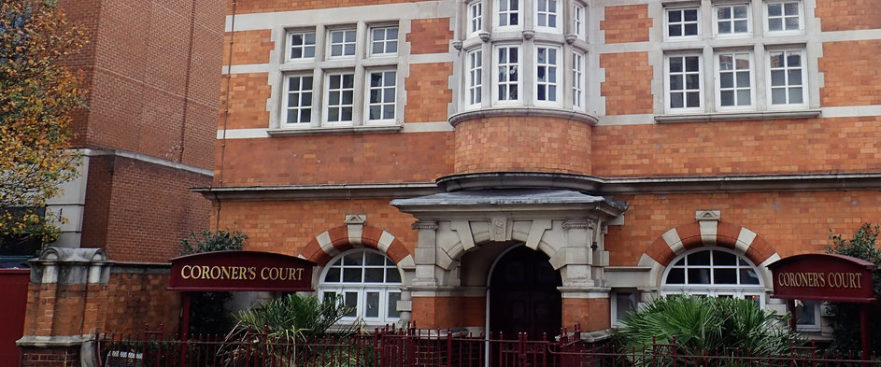
Blog: Daniel Machover on competences for lawyers practising in the Coroners’ Courts
26 Jan 2022
On 13 September 2021, the Bar Standards Board (BSB), CILEx Regulation and the Solicitors Regulation Authority (SRA) together published ‘Competences for lawyers practising in the Coroners’ Courts’.
The document, which was published ‘with a view to improving standards of advocacy in coroners’ proceedings’, sets out the various competences these three bodies now expect of inquest lawyers.
Here Hickman & Rose’s Head of Civil Litigation Daniel Machover i) briefly explains these competences; ii) discusses the key competence concerning the treatment of bereaved families; and iii) considers the competences’ relationship with the duty of candour, in light of their objective of improving the standards of inquisitorial advocacy.
The competences
The key competences relate to:
- dealing effectively with vulnerable parties;
- adapting communication and engagement to the purpose of inquests and the circumstances of those involved;
- keeping up-to-date knowledge and understanding of coronial law and practice and applying it effectively; and
- being aware of the support offered by other organisations and working with them, where appropriate.
Alongside the competences, all the regulators published a ‘toolkit’ of resources to assist with ‘understanding the expected standards when practising in inquests’, which includes helpful videos from practitioners and the Chief Coroner.
Practitioners will need to have these competences in mind and be ready to remind others of them where appropriate.
Treatment of bereaved families
In the Chief Coroner’s video, he and others emphasise that keeping the bereaved at the heart of the process has a meaning attached to it: ‘so that they feel confident that the inquest will get to the facts of what happened and feel properly involved and listened to throughout the process’.
Importantly, all inquest lawyers must remind themselves – and explain to their clients – that an inquest is not a means of apportioning blame, let alone a form of litigation, but a sharply focused and necessarily limited investigation into four questions: who the deceased was, and when, where and by what means the deceased came by his or her death. Accordingly, ‘whilst firm and robust questioning may sometimes be necessary, an aggressive and hostile style of questioning is not appropriate’ (competence 3.2).
Such questioning can be extremely detrimental to bereaved families, contributing to the distress of an already unbearable situation, and is wholly inappropriate in coronial proceedings.
Duty of candour and public bodies
While these competences are welcome in themselves, achieving the outcome referred to by the Chief Coroner requires a fully embedded ‘duty of candour’ applicable to all public bodies (and private organisations fulfilling public functions) following a death or serious incident. For a number of years, INQUEST has campaigned for such a duty to be enshrined in statute under a Public Authority Accountability Act (or ‘Hillsborough law’).
In May 2021, the House of Commons Justice Select Committee’s report on The Coroner Service included a recommendation to this effect (see para 81 of Section 3 ‘Putting bereaved people at the heat of the Coroner Service’). While this suggestion is long-awaited, it is regrettable that the Justice Committee appeared to frame the widening of the duty of candour solely ‘at inquests’, when clearly the need is for the duty to arise from the date of the death (or serious incident). This concern has also arisen in several public inquiries, such as the Grenfell Tower Inquiry where survivors and bereaved families have emphasised that candour, rigour and transparency – beginning from the date of fire – is necessary for promoting accountability and combatting institutional defensiveness by public bodies (see for example in Phase 2: submissions in January 2020 responding to the application for an undertaking from the Attorney General here; and Module 6 Opening in December 2021, especially Counsel to the Inquiry at page 11 here).
On 10 September 2021, the Government’s published its response to the Justice Committee’s recommendation (see section 10). This response refers to The Charter for Families Bereaved through Public Tragedy proposed by Bishop James Jones which contains a commitment by public bodies to approach inquests with candour and honesty, making full disclosure of relevant documents, material and facts in the search for truth and learning from past mistakes. The response also states that the Government ‘is committed to responding’ to the report but needs to offer ‘the families an opportunity to share their views before it publishes its full response’.
Hopefully, this process will be expedited, but in the meantime everyone implementing the new competences will want to bear in mind the final point made by the Government in responding to the Justice Committee:
‘The protocol for lawyers who represent government departments where they have interested person status at inquests within the ‘Guide to Coroner Services for Bereaved People’ includes the principle that such lawyers will approach the inquest with openness and honesty. Whilst the protocol only applies to Government departments, its use is commended to public bodies more widely.’


